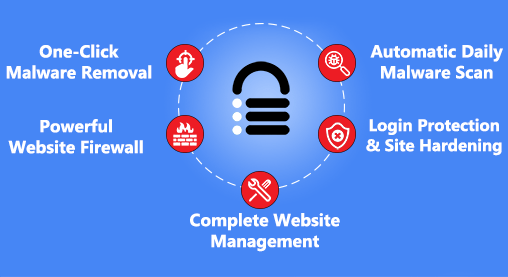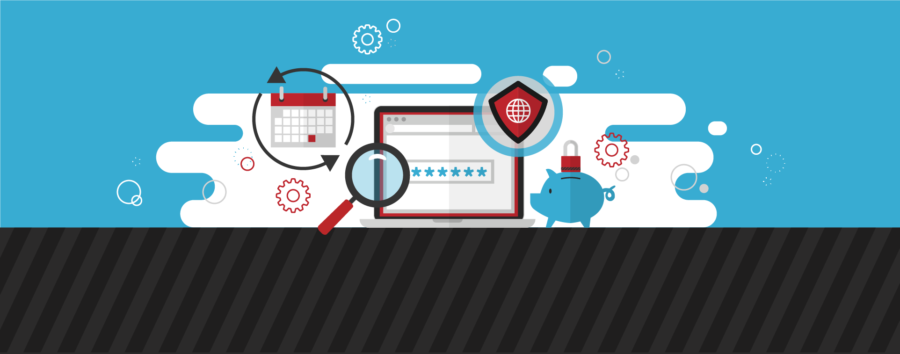The Main Principles Of Website Malware Protection
That said, this approach does depend on you having a tidy backup to work from. If you don't, your task will be a little more difficult, however there are still methods to fix a hacked Word Press site without a backup. Along with Go Daddy's backup service, the Updraft Plus plugin is a beneficial choice to help safeguard your site.
These 4 pointers will assist you fortify your site moving forward: Back your website up frequently. If you do not currently do so, make sure you back up your website typically. Go Daddy's easy Updraft Plus is likewise a popular and totally free solution that's simple to use. Select an ideal host.
While shared hosting is in some cases seen as less safe due to the variety of sites on each server, dedicated managed Word Press solutions work around that problem. Update your account passwords. This need to be a standard step after any attack, as your login qualifications might have been jeopardized. Picking a strong password is pretty basic, and while Word Press does consist of a devoted password generator, there are a lot of other useful tools online.
The Only Guide to Web Security
This is another no-brainer, as these plugins can cover a variety of security bases. There are lots of options available, although Wordfence Security is a leading contender that will examine for malware. Finally, be selective when it pertains to what you set up on your site. Plugin Directory site respectively), or credible style designers, such as Studio Press and Elegant Themes.
Taking the needed steps to safeguard your site and swipe away malware for great is well within your grasp. This post has actually provided a guide on hacker attacks, and discussed what is malware and how to keep your site safe. At this point, you must be well on your way to keeping the "baddies" at arm's length-- although be prepared for a consistent battle on that front!.
As a website owner, is there anything more terrifying than the idea of seeing all of your work transformed or entirely wiped out by a wicked hacker? We see information breaches and hacks in the news all the time. And you may think, why would somebody follow my small company site? But hacks don't just happen to the big guys.
8 Easy Facts About Website Malware Protection Explained
You have actually worked hard on your site (and your brand name)-- so it is essential to put in the time to safeguard it with these standard hacker defense tips. best Word Press hosting" data-medium-file=" data-large-file=" src=" alt="best Word Press hosting" class="wp-image-18313" srcset=" 470w, 300w" sizes="(max-width: 470px) 100vw, 470px"> You might have worried when beginning this post that it would be complete of technical jargon that your average website owner would discover confusing.

But there are a few things you can do on your own first that don't involve that much technical knowledge. If you built your https://en.wikipedia.org/wiki/?search=protect your webiste from malware website with a boost your website security with plugins that actively avoid website hacking attempts. Each of the main CMS options have security plugins offered, much of them for free.
In addition, all sites-- whether you're running a CMS-managed site or HTML pages-- can gain from thinking about Site Lock. Website Lock goes above and beyond just closing site security loopholes by providing everyday monitoring for whatever from malware detection to vulnerability identification to active virus scanning and more.
Web Security Things To Know Before You Get This
Keep in mind: Our Managed Word Press hosting strategy has Site Lock constructed in, together with other features to help protect your website. As a customer, you might already understand to constantly try to find the green lock image and https in your internet browser bar at any time you provide delicate details to a website.
An SSL certificate is very important due to the fact that it protects the transfer of details-- such as charge card, personal information, and contact details-- between your site and the server. While an SSL certificate has actually always been necessary for ecommerce sites, having one has actually just recently ended up being important for all sites. In July 2018, Google Chrome launched a security upgrade that notifies website visitors if your website does not have an SSL certificate set up.

Online search engine are taking website security more seriously than ever due to the fact that they desire users to have a positive and safe experience browsing the web. Taking the commitment to security even more, a search engine might rank your website lower in search results if you don't have an SSL certificate. What does that mean for you? If you want individuals to trust your brand name, you require to invest in an SSL certificate.
The Only Guide to Protection From Malware
At Host Gator, we also take website security seriously, but most notably, we desire to make it simple for you to be safe and secure. All Host Gator web hosting plans included a free SSL certificate. The SSL certificate will be immediately applied to your account, but you do deannpsl818.timeforchangecounselling.com/web-security-discovering-the-answers require to take a few actions to install the totally free SSL certificate on your website.
The leading cause of website infections is vulnerabilities in a content management system's extensible components. Since many of these tools are developed as open-source software application, their code is easily available-- to both good-intentioned developers along with malicious hackers. Hackers can pore over this code, trying to find security vulnerabilities that enable them to take control of your website by exploiting any platform or script weaknesses.
If you're running a site constructed on Word Press, you can check whether you're up to date rapidly when logging into your Word Press control panel. Try to find the upgrade icon in the leading left corner beside your site name. Click the number to access your Word Press Updates. This one appears easy, however it's so crucial.
The Greatest Guide To Malware
That's why the # 1 most typical password is still 123456. You need to do much better than that-- a lot much better than that to avoid login efforts from hackers and other outsiders. Make the effort to figure out a genuinely safe password (or utilize Host Gator's password generator).
Use a mix of unique characters, numbers, and letters. And stay away from potentially easy-to-guess keywords like your birthday or kid's name. If a hacker in some way http://www.bbc.co.uk/search?q=protect your webiste from malware gets to other details about you, they'll know to guess those first. Holding yourself to a high standard for password security is step one.
One weak password within your group can make your site susceptible to an information breach, so set expectations with everyone who has access. Institute requirements for all website users in regards to length and kinds of characters. If your employees wish to use easy passwords for their less secure accounts, that's their company.
9 Simple Techniques For Protection From Malware
Even if you do whatever else on this list, you still deal with some danger. The worst-case circumstance of a site hack is to lose whatever because you forgot to back your website up. The very best method to secure yourself is to ensure you constantly have a current backup. While an information breach will be stressful no matter what, when you have an existing backup, recuperating is a lot easier.